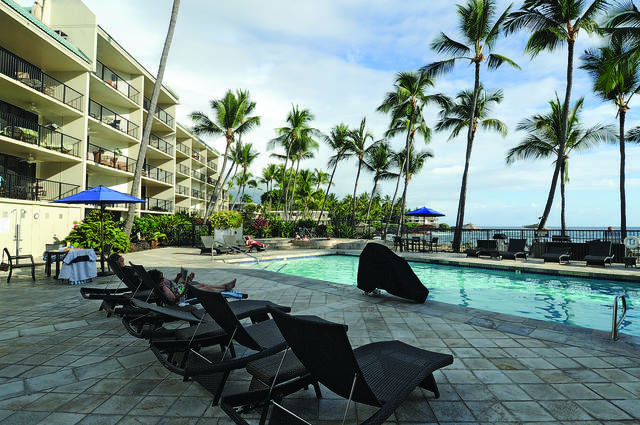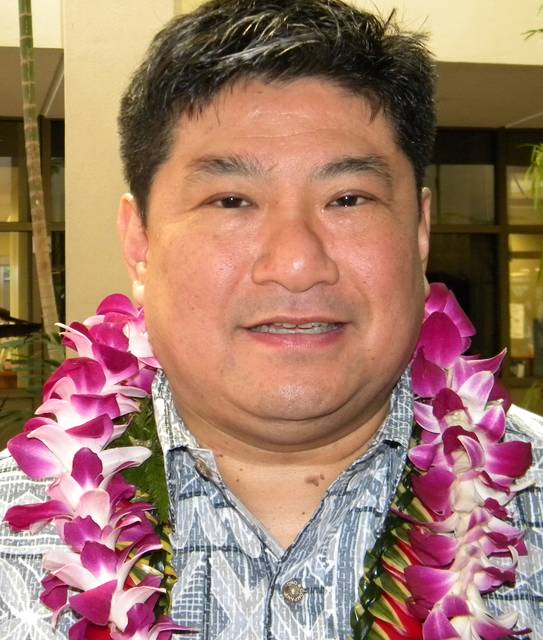County releases draft vacation rental rules



HILO — Will the county’s new vacation rental regulations affect you?
HILO — Will the county’s new vacation rental regulations affect you?
The county Planning Department wants to hear from the public about its proposed rules regulating the rentals on the island.
The department has scheduled public hearings on its draft rules with the intention of incorporating comments and suggestions into crafting the final draft. The rules process follows passage of Bill 108 last year, requiring regulation of short-term rentals of property where the owner doesn’t live on-site.
“I want folks that are impacted from it and are able to vet it out for us,” Planning Director Michael Yee said Thursday. “It’s not about whether you agree or disagree with Bill 108. That’s already passed. That’s not open for debate anymore.”
Instead, Yee hopes to hear how to make the rules better. That’s why he’s scheduled two sets of public hearings so the department can make changes before presenting the final draft to the public.
Public hearings on the draft rules are scheduled for 5:30 p.m. Feb. 28 at the West Hawaii Civic Center in Kona and March 1 at Aupuni Center in Hilo. The rules will then be finalized, taking public input into account and presented at a final public hearing April 2 before going into effect April 15.
Fines for violators remain an issue. The current draft references the county code fine of $500 per day for all zoning violations, but Yee thinks the department has the authority to create a rule increasing that fine for vacation rental violators without having the County Council pass a new law. Fines as high as $20,000 per day and $30,000 per day have been implemented in other Hawaii counties as a way to stem illegal entries into the lucrative industry.
Yee said county Corporation Counsel is researching the issue.
“You don’t want the same fine as for having a rooster,” Yee said. “That really isn’t going to cut it. It has to be sufficient to deter the illegal vacation rental activity.”
A short-term vacation rental is defined as a dwelling unit where the owner or operator does not live on the building site, that has no more than five bedrooms for rent and is rented for 30 days or less. The short-term use of an owner’s primary residence as defined under Section 121 of the Internal Revenue Service code is exempt.
The draft rules require all non-hosted rentals to apply by Sept. 28, submitting a $500 fee and a host of documents proving the rental was in operation prior to April 1, that all property taxes, transient accommodations taxes and general excise taxes have been paid and building, plumbing and electrical permits have been approved. The application must also include site drawings showing off-street parking and floor plans and proof of notice to all neighbors within 300 feet of the property boundaries.
Vacation rentals not in allowed zoning districts must also apply for a nonconforming use permit, which must be renewed annually with a $250 renewal fee. Zoning districts that don’t require the nonconforming use certificate are resort, general commercial, village commercial, multifamily residential within a condominium property regime and residential and commercial zoning districts located within general plan resort and resort node designations.
The registration number of the vacation rental must be displayed in any print and online advertising.
Once a vacation rental is approved, it must follow rules, including so-called “good neighbor” rules that set quiet hours from 9 p.m. to 8 a.m. and bar unpermitted events such as weddings, special performances and sponsored events. Overnight guests will be limited to no more than 16.
In addition, the name and telephone number of an assigned “reachable person” must be posted inside the front door along with the registration certificate. The reachable person must live on the island and must be reachable 24/7 by guests, neighbors and county agencies.
North Kona Councilwoman Karen Eoff, co-sponsor of Bill 108, said the rules follow the intention of the bill.
“The draft rules provide clarity, more details and clear explanations on the policies contained in Bill 108 – Ordinance 18-114. Basically, they are the means for implementation and processing of applications,” Eoff said. “The rules will be an important tool for both the staff at the Planning Department and for those who will be registering a short term vacation rental.”
The draft rules are available at the Planning Department’s Hilo and Kona offices and online at https://www.hiplanningdept.com/wp-content/uploads/2019/01/PD_RULE23_DRAFT.pdf
Written comments may be submitted in person at the public hearings or be submitted to the Planning Department at Aupuni Center, 101 Pauahi St., Suite 3, Hilo, HI 96720.



Unfortunately, this bill does nothing to address neighborhoods that have been “condominimized” from owners renting “ohana” structures, garages, etc. by the month that are not technically legal and for which the zoning is not appropriate. They very likely pay no taxes on this income and are transforming quiet neighborhoods into high density situations that create undue noise and excessive traffic. In a one block area compromising six properties where I walk in north Kona I have counted 30 cars coming and going from these properties alone on one block! These properties have three or four tenants each living on their land. This needs to be addressed – Eoff, this is your district, perhaps you want to give it some consideration as well before you leave office.
The states at 14 billion in the hole for their lavish retirement fund. Their desperate to get our money any way they can. Just look at lying Harry $kim. Harrys campaigne speech should of been. Let’s starve the children of Hawaii because we can.
This seems ambiguous “rented for 30 days or less”. If a home rental contract is for 31 days but the renters only stay 2 wks or less than the 31 days does it fall under this? Technically what they pay is for the contracted amount of DAYS. You can’t make people stay the full Term, and what if another contract is given after they move out before the end of the first 31 day contract and so on. CONFUSING 🤔
The one thing the County is good at is making people homeless!
Workaround…31 day contract with an up front payment equal to 1 or 2 weeks rental. Visitor leaves prior to rental term with a $1 penalty.
Taxation is theft. If you don’t want each & every transaction reported to the government, I suggest using crypto currency to avoid big brother & government monitoring through the banking laws. Try DASH
https://uploads.disquscdn.com/images/cf6efb3f0106007583c36f2cbddd2d55996b6f2c34cfc00c6bb7421d5758056d.png